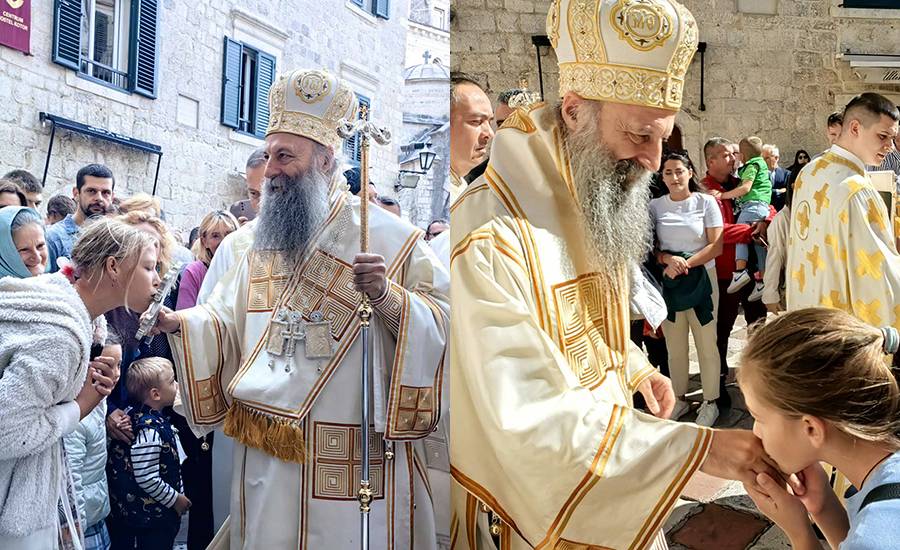
Sermon by Patriarch Porfiri in the Church of Saint Nicholas in Kotor
Sermon of His Holiness Serbian Patriarch Mr. Porfiri held on September 29, 2024 at the Holy Liturgy in the Church of Saint Nicholas in Kotor
In the name of the Father and the Son and the Holy Spirit. Brothers and sisters, when the Lord preached to those who followed Him, i.e. those who were hungry and thirsty for truth, justice and the meaning of life, he most often spoke in stories. His words were not abstract wisdom and empty philosophy, empty words as the ancient Greeks spoke of wind and waters, but His stories were mostly parables, metaphors and allegories, stories from the ordinary everyday life of the people to whom he addressed, from the areas from which the people came. had a personal life experience. Those stories did not have the character that stories often have today. When we say I'm telling you a story, we mostly mean that it is producing untruths, that we are talking about fantasies. Today almost as a rule, there are exceptions and they confirm the rule, stories are empty stories and the word as such has lost its meaning, its weight and its value. Especially in the ecclesiastical sense, every word, especially when we talk about the stories spoken by the Lord himself, has its own deep meaning, meaning now, in the past, and in the future, forever and ever, i.e. when those stories were told, the authority of Him stood behind them who speaks and He guaranteed that every word implies, at the very least, effort and effort, that what is said has its own value, that it corresponds to truth and facts.
And here, our Lord, speaking about the deepest spiritual values, in the concrete case about the Kingdom of Heaven, again uses a story from everyday life, a story that everyone can understand, in order to describe the deepest secret of the Kingdom of Heaven. He talks about the wedding as a picture of the Kingdom of Heaven. This story is recorded by the evangelist Matthew, and also by the evangelist Luke.
Namely, says the Lord, the Kingdom of Heaven is like a wedding and a royal wedding, and a wedding is nothing but joy, beauty, song, dance. A wedding is an event in which everyone participates, everyone is shown honor and attention, and everyone has the same opportunity to rejoice, regardless of social status, regardless of what kind of education one has, regardless of any external category. Every worry, every bitterness, every trouble is put aside and becomes secondary. When we look forward to a wedding celebration, that's where people make peace, establish contacts, build bridges. In a word, a wedding is nothing but beauty and blessing, grace and joy. It is precisely the image of a wedding that the Lord uses to show the secret of the Kingdom of Heaven, and here it is about the wedding of the King's son. And the emperor invites everyone to that wedding, both far and near. What's more, since there are many places in His courts, even when everyone has come there are still places left, then He sends out to the streets, to the squares, to the crossroads and invites everyone to that wedding. He invites everyone to joy. He gives it away. However, whether the Emperor's joy will be the joy of everyone and whether everyone will position themselves in the same way in relation to His call depends on the guests.
In the story we heard, we have a situation where many responded, but some were busy with their jobs, or better said, personal, individual interests, individualistic interests, found an excuse. One bought a field, so he had a good excuse and excuse to go and see to look at that field; another bought a pair of oxen; the third had his own wedding and they apologized, i.e. said it. It's not that they didn't have time, it's not that they were sick and weak, so they couldn't respond. No, but their individual interests, of a material nature, were enough for them not to respond to Ccar's call. And is there any greater dignity and honor than to be invited to the courts of the Emperor and to share in the Emperor's joy. It is not, therefore, that those who did not respond are punished for that. No, but they themselves decided their place, and that place according to this story is a place of darkness, a place of sadness, gnashing of teeth. That place is the place of Hades, a place that is far from the Emperor's palace.
So, although all are invited, few are chosen, and who is chosen is not in the hands of the Lord and Emperor, because He does not decide who is chosen. Everyone was chosen for him, and those who were not chosen did not choose for themselves and thus remained outside the context, outside the space of joy. It is not that material goods and material reasons are in themselves to be condemned and rejected, but that they should be placed in their place in the scale of values, the scale of priorities. In other words, both material goods and values are called to be spiritual. How? So that the spiritual will precede, so that the priority will be spiritual. The priority will be the Kingdom of God, i.e. the priority will be the Emperor's court and the Emperor's joy to which we are called, which is the Kingdom of Heaven.
Only when it is at the base of earthly values, paradoxically - and in faith everything is paradoxical and in the presence of God everything has an inverted perspective - only when the Kingdom of Heaven is at the foot of the earthly kingdom, does the earthly acquire its fullness and its meaning. In this story, the Lord (the King) invited all people to the wedding of his Son, everyone and everything. The host recognized that someone did not have a wedding dress and most often that person was asked by the host: Friend, what are you doing here, you don't belong here, because you don't have a wedding dress? Even though the Lord called everyone and that is a paradox. Of course, in the foreground there is effort and effort to live virtuously. Our clothes are not just outer clothes. The essential, deep clothing is the inner spiritual clothing, virtue and benefactor in which we are clothed. The emperor recognizes in one who came that he did not strive and that his primary virtue was not benefactor and doing good in life, but again his personal interest, individual and individualistic, the one that separates him from the other, the one who sees the other as a competitor , opponent, enemy.
However, the tradition of our Church sees another dimension of those who are not dressed in wedding clothes. These are those who are full of themselves, proud, who have no calmness, calmness not as a psychological mood or self-control, but an ontological calmness or self-awareness that when I do good I am not doing anything great. It is normal and natural. It is natural for me to do good. For this reason, I should not be arrogant, boast, think that I am better than others, because I only did what was my duty, what was right, what was normal and healthy, what corresponded to healthy and normal human nature. So, he is not dressed in a wedding garment when he is filled with self-love and pride, when even when he does good, he actually makes a mistake thinking that he is doing something great, thinking that God is obliged to repay him for his effort and his gift. Therefore, the calm, humble, who use their talents and gifts to glorify God and to serve others, to build community with others and with their neighbors, enter the Kingdom of God. At the same time, every man is a neighbor and we are called to see him as a neighbor, because everyone is created in the image and likeness of God.
May the Lord grant, brothers and sisters, that even though we are not dressed in wedding clothes most of the time, we know that there is still room in the Emperor's House. And when the whole world enters, there is room left, because His love is boundless, because His heart is wide, because His chest is so wide that the whole world and all people can fit in that House, on that chest and in that heart. We just need to dress in wedding clothes, and that is nothing but our desire and aspiration for the House of the Emperor, for the House of God, and the awareness that no matter what we do and no matter how much we do, we can never be worthy. We can say that the only thing that does not make us worthy to participate in the wedding of the King's Son is that we think we are worthy. The Kingdom of Heaven is the Holy Liturgy, the Holy Eucharist. This is where the King gives us His Son so that, by partaking of His Body and Blood, we become fellow flesh and blood members, full citizens of the Kingdom of Heaven. The only thing that makes us unworthy to participate in this secret is precisely the self-infatuated, proud, egoistic feelings that we are worthy.
May the Lord be merciful to all of us and may he, having humility and modesty, try to do virtue as much as we can and be good so that things will be better, have mercy on us, and may we always glorify the One in the Trinity of God, the Father and the Son and the Holy One Spirit, now and always and forever and ever, amen.
Source: SPC
PHOTOS
RELATED ARTICLES
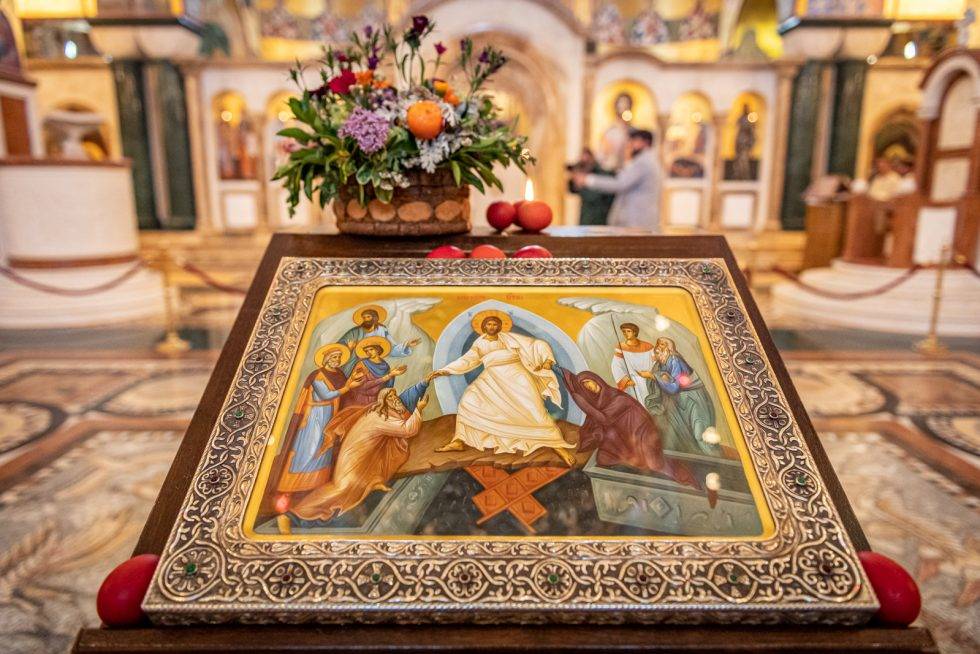
Easter Tuesday
Maundy Tuesday, Easter Tuesday (Greek: Τρίτη...
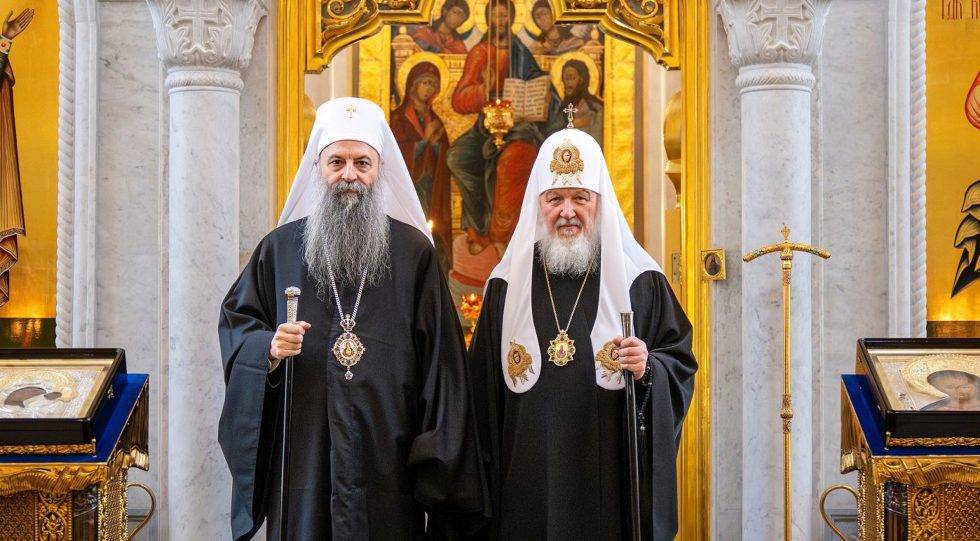
Serbian Patriarch Porfirije Travels to Moscow Today
Responding to the fraternal call of His Holiness Patriarch of Moscow and All...
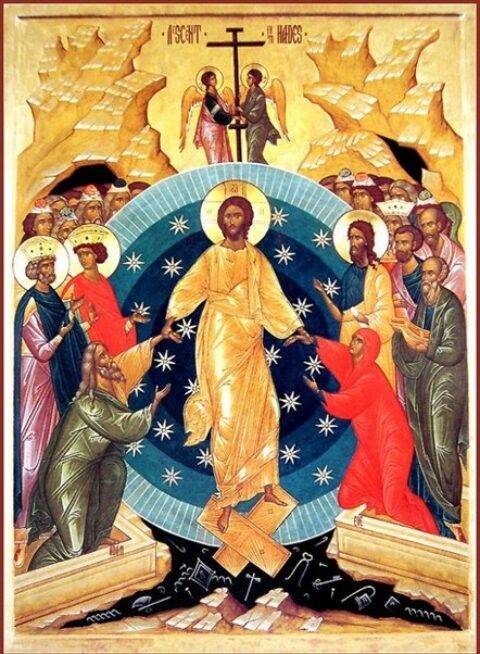
Calendar for April 21 Easter Monday
Early on Sunday, before dawn, Mary Magdalene, Mary the mother of James, Salome...


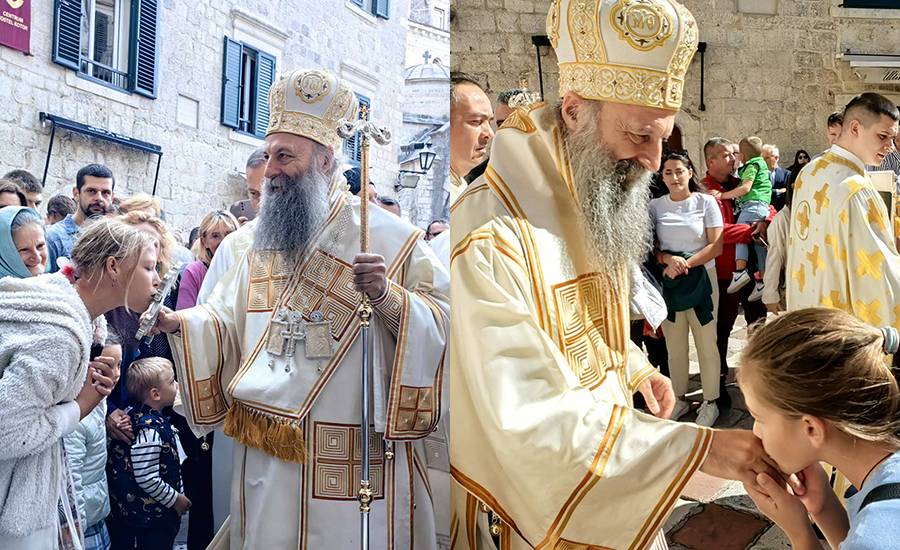

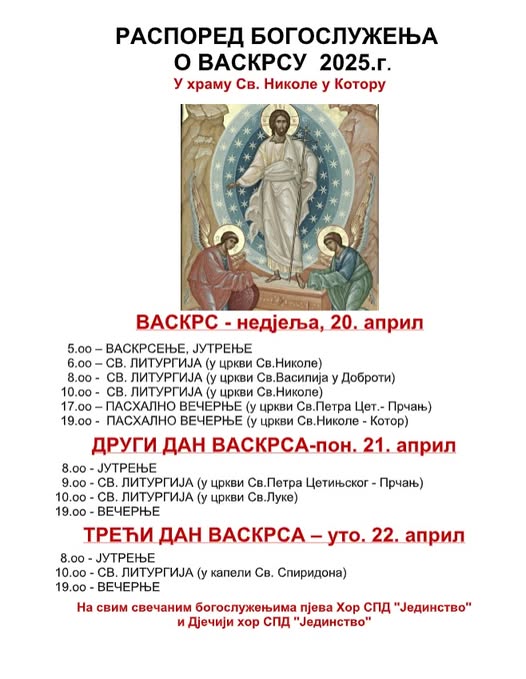
.png)